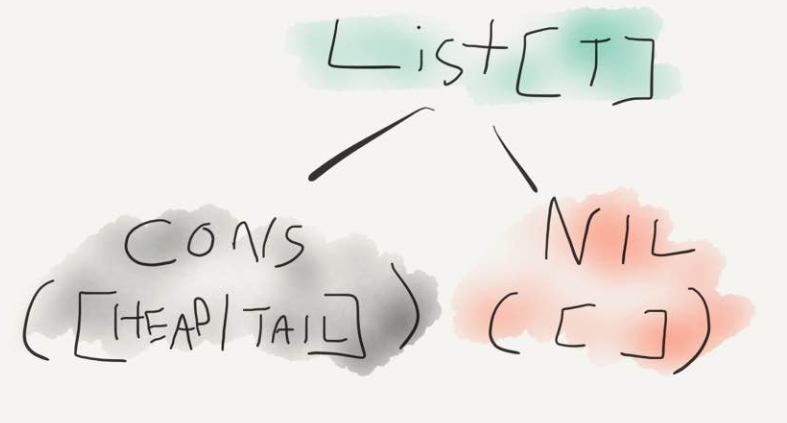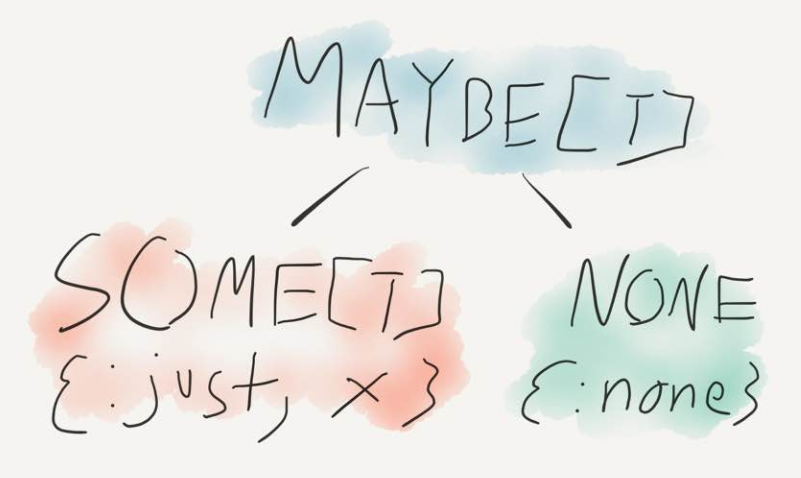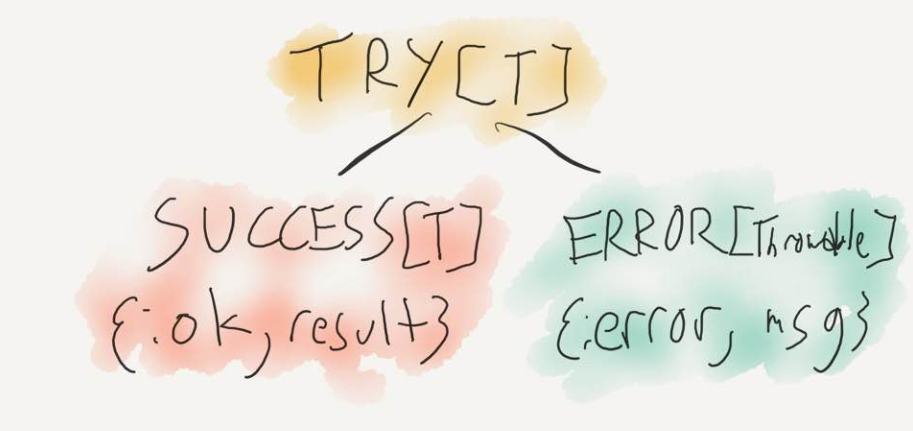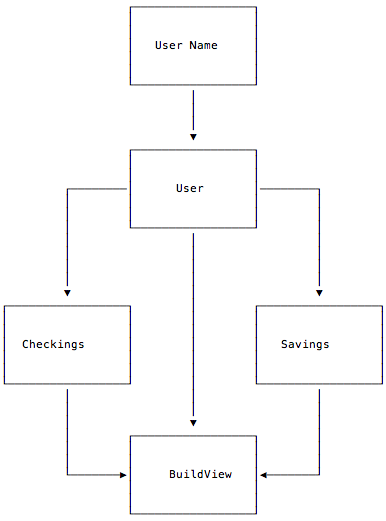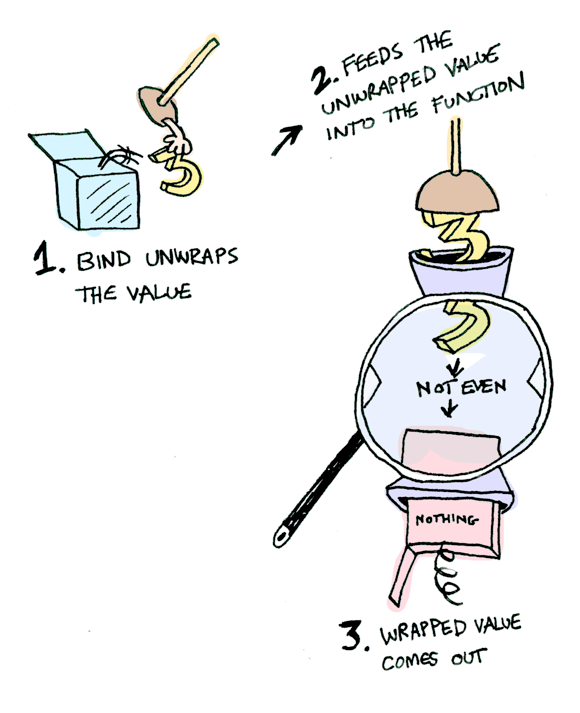- Objectives:
- Understand functional programming a bit better
- Categorize and understand approaches
- See which approaches fit which problems
- Map concepts and approaches from Scala/Haskell to elixir
- Scala guy
- Wrote books on FP, Actor Model, Distributed Systems (O'Reilly, Packt)
- Built some big scale things (mDialog, bought by Google)
^ akka is modelled after erlang
- Elixir/OTP, Scala, Akka, Kafka, Event Sourcing, CQRS...
- [email protected]
- Software gets more complex over time
- Functional programming can help us tackle the complexity
- brings data and logic together
class Lamp {
isOn = false // Data/state
def flickSwitch() { isOn = !isOn } // Behavior
}
^ A class should have related behavior and logic ^ Objects interact with each other encapsulating their state ^ (tell don't ask)
- separates data and logic
def flick_switch(lamp), do: {lamp | !lamp.is_on}
lamp = %Lamp{is_on: false}
new_lamp = flick_switch(lamp)
^ functions act on data ^ chain together functions to build complex applications
- A composite type formed by combining other types
- 'Algebraic' because it is a Sum of either
Type a | Type b - Can be used to express effects like nil and failure
- Can also describe a Product (eg tuples)
^ So remember these two categories of ADTs ^ They look different between scala and elixir ^ but express the same ideas ^ I'm not going to say "oh you should use this library or that library - we are focusing on core concepts here"
- A result:
{:ok, result}{:error, message}- ^ tagged!
Try[T]Success[T]Failure[Exception]
list match {
case head :: tail => println(s"cons cell with $head")
case Nil => println("end of list!")
}
case list do
[head | tail] -> IO.puts "cons cell with #{inspect head}"
[] -> IO.puts "end of list!"
end
^ Even though these are expressed differently, a List still consists of a cons cell or a nil/empty list in both languages
^ Now this might look a bit strange to you if you're coming from ruby ^ Languages like java8, scala and haskell have this construct in their core ^ the idea is to create safety and eliminate null pointer exceptions ^ it moves the null effect to a type, and makes it explicit ^ you never actually return nil so there are no making mistakes
Option(maybeNullFun()) match {
case Some(x) => println(s"got $x")
case None => println("nothing!")
}
case maybeNullFun() do
{:just, x} -> IO.puts "got #{inspect x}"
{:none} -> IO.puts "nothing!"
end
^ Instead of returning nil you could put the result in a record ^ It becomes explicit that it can return a null
^
Try(dangerousFun()) match {
case Success(x) => println(s"successfully got $x")
case Failure(t: Throwable) => println(s"failed with $t")
}
case dangerousFun() do
{:ok, x} -> IO.puts "successfully got #{inspect x}"
{:error, msg} -> IO.puts "failed with #{msg}"
end
^ This is a more common record in elixir ^ in elixir we can represent a result in the same way, and we do this all the time
- input |> validate |> transform |> respond
- input |> validate! |> transform! |> respond
- Assumes value in/value out
- Good for pure functions, or if throwing
- Doesn't work well with our tagged tuples
input |> next_fun |> another_fun
path
|> File.read()
|> read_chunks()
|> wrap()
defp read_chunks({:ok, binary}) do
{:ok, :beam_lib.chunks(binary, :abstract_code)}
end
defp read_chunks(error), do: error
defp wrap({:ok, data}) do
{:ok, wrap(data)}
end
defp wrap(error), do: error
- Offers a solution to the previous example
- Expands macros to handle errors and pass them along
- Strings together a bunch of operations
- If an error is encountered, processing "switches tracks" and passes error along.
1511410370
>>> DateTime.from_unix # {:ok, #DateTime<...>}
>>> Timex.format("{ISO:Extended}") # {:ok, "2016-02-29T12:30:30.120+00:00"}
"bad"
>>> DateTime.from_iso8601 # {:error, :invalid_format}
>>> Whatever.function # ^^^ passed along
- Simple, easy to use and understand but...
- Limited to certain contracts
- Poor composability!!
- Building a bank account status page:
- Get user account from user id
- Get checking account
- Get savings account
^ Go get one thing, then get two more things with the result, then return all three of the results
Monads have also been explained with a physical metaphor as assembly lines, where a conveyor belt transports data between functional units that transform it one step at a time. -- Wikipedia
^ A category of a type ^ "higher kinded type" ^ User class is to User object, as Monad is to Try, Maybe, etc
- Google "monads in pictures" http://adit.io/posts/2013-04-17-functors,_applicatives,_and_monads_in_pictures.html
- informally: category of a type which has "bind" aka "flatmap"
- flatmap can chain together a bunch of monads
- Like "RoP," will pass any "bad" result along
maybe.map(x => x+3)
maybeNumber.map(x => maybeHalf(x))
- Monads apply a function that returns a wrapped value to a wrapped value.
- maybeNumber.flatMap(x => maybeHalf(x)).flatMap(x => maybeHalf(x))
getUser(username).
flatMap(user =>
getCheckingAccount(user.id).
flatMap(checkings =>
getSavingsAccount(user.id).
map(savings =>
makeOrder(user, checkings, savings))))
//Try[(User, Acct, Acct)]
^ We take user and flatmap will "unwrap it" ^ we can get a "wrapped" checkings account with the unwrapped user and put it off to the side for later ^ then use the user to get the savings account ^ then we can call make order which gives us another try ^ flat map will handle all unwrapping all of the containrs so we end up with our result in a one container
for {
user <- getUser(username)
checkings <- getCheckingAccount(user.id)
savings <- getSavingsAccount(user.id)
} yield makeOrder(user, checkings, savings)
//Try[Order]
- Looks very similar to scala comprehensions of monads!
with {:ok, user} <- get_user(username),
{:ok, checkings} <- get_checking_account(user.id),
{:ok, savings} <- get_savings_account(user.id)
do
{:ok, make_order(user, checkings, savings)}
else
{:error, _} -> {:error, "failed to build order!"}
end
^ handles :ok/:error in processing pipeline ^ passes errors through (good parts of RoP) ^ handles multiple response structures if needed ^ composability!
- account example expects synchronous responses
with
{:ok, user} <- get_user(username)
checking_task <- Task.async(fn -> get_checking_account(user.id) end)
savings_task <- Task.async(fn -> get_savings_account(user.id) end)
{:ok, checkings} <- Task.await checkings_task,
{:ok, savings} <- Task.await savings_task,
do: {:ok, make_order(user, checkings, savings)}
List("ok") match {
case x :: tail => println("cons cell")
case Nil => println("empty list")
}
def iterate([head | tail]), do: iterate tail
def iterate([]), do: # done!
case Repository.insert record do
{:ok, result} -> # happy path
{:error, msg} -> # error path
end
^ Pattern matching is a core language feature in all functional languages ^ Algebraic data types is just a term used to describe categories of types ^ In elixir this is usually represented as a tuple of :ok and :error ^ You could think of a list also being either a cons cell with a value and a reference to another list, or an empty list. ^ You could think of nil vs not nil as categories as well ^ Elixir doesn't have ADTs, but we can envision the same semantics ^ example ^ for example DateTime.from_unix(4) DateTime.from_iso8601("b")
- Example of an ADT implemented in Elixir with `algae``
defmodule Maybe do
defsum do
defdata Nothing :: none()
defdata Just :: any()
end
end
Maybe.new()
#=> %Maybe.Nothing{}
^ Some people have tried to introduce ADTs into elixir ^ It's not impossible, but just not idiomatic
x = 1
my_fn = fn() -> x end
x = 2
1 = my_fn.() # matches!^ ^^ my_fn.() returns 1! ^ Elixir supports name rebinding but the original variable x is not mutated ^ This is a bit less important - going to talk a lot more about the ADTs or "categories" of things and how to compose them together in elixir
I call it my billion-dollar mistake. [...] I was designing the first comprehensive type system for references in an object-oriented language. My goal was to ensure that all use of references should be absolutely safe, with checking performed automatically by the compiler. But I couldn’t resist the temptation to put in a null reference, simply because it was so easy to implement. This has led to innumerable errors which have probably caused a billion dollars of pain and damage in the last forty years. – Tony Hoare, Inventor of ALGOL W.
^ You guys are used to seeing :ok and :error atoms so I'm going to demonstrate most of this processing with nil/not nil to get you to think more laterally about processing data ^ for example DateTime.from_unix(4) DateTime.from_iso8601("b")
- draw a picture here
val x = Option(maybeNull) // produces either Some(value) or None
.getOrElse(default) // returns the value in Some or default if None- method declaration explicit about null return type
- expresses the null effect as a type for safety
x = maybe_nil || default- Rubyism -
"bob"is not equivalent totruein most languages - Works in elixir because nil is falsy and references are truthy
- or Success/Failure (:ok/:error)
- or whatever categories of result!
def getUserFromDatabase(username: String): Option[User] = ???
getUserFromDatabase(username) match {
case Some(user) => user
case None => User(username)
}
- Explicit null possibility expressed in type signature ^ Probably looks familiar to you if you're working with elixir ^ Except you know with certainty that this can return a null
- Earlier example is not enough
x = maybe_nil || default - Want to express "categories" of responses
- Express "categories" of types/responses
- eg. Some or None, Success or Failure
-
In elixir, common idiom is to use a tuple
- try/success/failure:
{:ok, result}{:error, error_message}- maybe/some/none:
{:ok, greater_than_five_message}{:none}
^ I've already been hinting at this so this shouldn't be much of a suprise ^ But we're going to take this example a lot farther
def get_user_from_database(username), do: ...
case get_user_from_database("bob") do
{:ok, user} -> user
{:none} -> %User{name: "bob"}
end
- You see this a lot with failures instead of raising exceptions
{:ok, result}or{:error, message}
^ May be better than returning nil because it's very explicit that it can be null. ^ It's like raising vs responding with :ok
- Lots of cognitive load
- How do you chain together a bunch of operations?
input
|> something_that_can_fail
|> something_else_that_can_fail
|> oh_snap
- Nothing demonstrated has been expressive enough...
- We want to be able to chain, but gracefully handle multiple categories
res = input
|> something_that_can_fail
|> something_else_that_can_fail
case res do
{:ok, result} -> ...
{:error, msg} -> ...
{:none} -> ...
end- Appropriated term...
defmacro left >>> right do
quote do
(fn ->
case unquote(left) do
{:ok, x} -> x |> unquote(right)
{:error, _} = expr -> expr
end
end).()
end
end
@doc "will return {:ok, notification} or {:error, error_msg}"
def email_notification(notification_id) do
get_notification_details notification_id
>>> validate_notification
>>> send_email
>>> mark_sent
end- Better than pipes for error handling!
- Cannot compose!
- To make
Order, Amazon needs:UserShopping CartShipping Address
^ can you see the problem with this?
- Often can't just pipe output from one method into another
{:ok, user} = getUser(username)
{:ok, cart} = getCart(user.id)
{:ok, address} = getAddress(user.id)
{:ok, order} = createOrder(user, cart, address)
Monads have also been explained with a physical metaphor as assembly lines, where a conveyor belt transports data between functional units that transform it one step at a time. -- Wikipedia
- Looks like railway oriented programming
- But has more flexibility to compose results of operations
def order(username: String): Try[Order] =
for {
user <- getUser(username)
cart <- getCart(user.id)
address <- maybeGetAddress(user.id)
} yield createOrder(user, card, address)- returns
Success(order)orFailure(exception)
@doc "returns {:ok, order} or {:error, msg}"
def create_order(username) do
with {:ok, user} <- get_user(username),
{:ok, cart} <- get_cart(user.id),
{:ok, address} <- get_address(user.id),
do: create_order(user, cart, address)
end
^ Let's look at what we did here ^ We were able to bring the "railway oriented programming" error handling ^ without any libraries! ^ We were able to compose together the results of multiple function calls in a way you can't with pipe or ROP ^ We were able to be explicit about the success or failure types without any exception effects ^ and we did it with barely any code
- LET IT CRASH!
- still explicit where effects are by (!) convention
user = get_user! username
cart = get_cart! user.id
address = get_address! user.id
create_order!(user, cart, address)
^ Remember the rule of least power ^ If you're building complex systems with many processes ^ There is a huge overhead to that, to learning, maintaining, and ensuring supervision is correct ^ GenServer is powerful and you don't need to worry as much about error handling so this code might be fine
- A telco customer wants to see their phone, tv, and cell bill in one.
TODO draw picture


